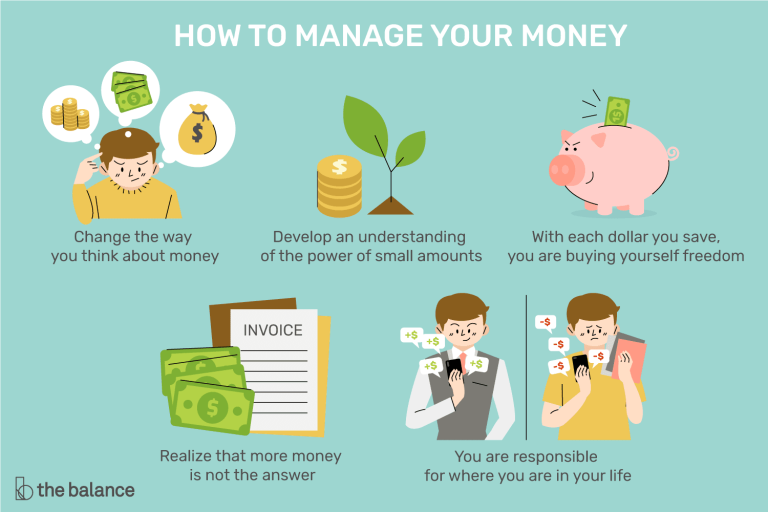Is Audible Good For The Brain?
Are you wondering if Audible is good for the brain? Well, get ready to dive into the fascinating world of audiobooks and their impact on our minds. Whether you’re a book lover or a busy bee always on the go, Audible has become a popular choice for accessing a vast library of books through audio. But does listening to books instead of reading them have any benefits for our brains? Let’s find out!
In today’s fast-paced world, finding the time to sit down and read a book can be a challenge. That’s where Audible comes in, offering a convenient alternative by allowing you to listen to books narrated by talented voice actors. But beyond convenience, there’s a growing body of research suggesting that audiobooks can have positive effects on our cognitive abilities. So, is Audible good for the brain? Let’s explore the fascinating ways in which engaging with audiobooks can stimulate our minds and expand our horizons.
Audible is a fantastic tool for the brain. Listening to audiobooks stimulates cognitive function, enhances imagination, and improves focus. It allows you to multitask, making the most of your time while absorbing knowledge. With a wide range of genres and titles, Audible offers something for everyone. Whether you’re driving, exercising, or simply relaxing, Audible can be a valuable companion for your brain.

Is Audible Good for the Brain?
Audible, the popular audiobook platform owned by Amazon, has gained significant popularity in recent years. With its vast library of audio content, Audible has become a go-to platform for book lovers who prefer listening over reading. But beyond the convenience and accessibility it offers, many wonder if Audible is actually good for the brain. In this article, we will explore the impact of Audible on the brain and discuss its potential benefits and drawbacks.
The Benefits of Audible
Listening to audiobooks on Audible can have several positive effects on the brain. One of the main advantages is that it allows individuals to consume books while engaging in other activities. Whether you’re commuting, exercising, or doing household chores, Audible provides an opportunity to make use of that time by listening to books. This multitasking ability can enhance productivity and efficiency, as well as provide a sense of accomplishment.
Furthermore, Audible can be particularly beneficial for individuals with visual impairments or learning disabilities. It offers an inclusive platform that makes literature accessible to a wider audience. By listening to audiobooks, people with visual impairments can enjoy literature in a way that suits their needs, fostering a love for reading and storytelling.
Improved Vocabulary and Language Skills
Engaging with audiobooks on Audible can also contribute to the development of vocabulary and language skills. Listening to narrators’ expressive and articulate speech can expose listeners to new words and phrases, helping to expand their lexicon. This exposure to diverse language patterns and cadences can have a positive impact on language acquisition and fluency.
In addition, Audible offers a wide range of titles, including those narrated by renowned actors and voice artists. The captivating performances and skilled narration can enhance listeners’ understanding and appreciation of the written word, making the listening experience both enjoyable and educational.
Enhanced Cognitive Abilities
Research suggests that listening to audiobooks can stimulate cognitive abilities. When we listen to a story, our brain processes the information, creates mental images, and connects the narrative with our own experiences. This cognitive engagement can improve memory, attention, and critical thinking skills.
Audible also provides an opportunity to explore various genres and subjects that might not have been considered otherwise. This exposure to diverse topics can broaden knowledge and foster curiosity, which are essential for lifelong learning and intellectual growth.
Potential Drawbacks of Audible
While Audible offers numerous benefits, it is important to consider potential drawbacks as well. One of the main concerns is the potential decrease in active reading. Reading requires active engagement, as the reader must decode the text, visualize scenes, and actively construct meaning. Audiobooks, on the other hand, provide a more passive experience, as the narrator does the reading for the listener.
Additionally, some studies suggest that retention and comprehension may be lower when listening to audiobooks compared to reading. The process of reading allows for more reflection and analysis, as readers can pause, reread, and take time to reflect on the content. Listening, on the other hand, may lead to a more superficial understanding of the material.
Distraction and Multitasking
Another potential drawback of Audible is the temptation to engage in multitasking while listening. While it can be convenient to listen to audiobooks while performing other activities, such as driving or exercising, it is important to ensure that these activities do not distract from fully absorbing the content. The brain may struggle to fully focus on both tasks simultaneously, leading to reduced comprehension and enjoyment of the audiobook.
Furthermore, the use of Audible may contribute to the growing dependence on technology for entertainment and information consumption. Excessive screen time and constant exposure to audio content may limit opportunities for quiet reflection and introspection, which are essential for mental well-being.
Conclusion
There are both benefits and drawbacks to using Audible for brain stimulation and learning. While it offers convenience and accessibility, it is important to strike a balance between passive listening and active engagement with printed text. Incorporating a variety of reading formats, including audiobooks, can provide a well-rounded approach to learning and brain development. Ultimately, the impact of Audible on the brain depends on how it is used and integrated into one’s reading habits and lifestyle.
Key Takeaways: Is Audible good for the brain?
- Audible can improve reading comprehension and vocabulary skills.
- Listening to audiobooks can enhance concentration and focus.
- Audible offers a wide range of genres and titles to cater to individual interests.
- Listening to audiobooks can be a convenient way to consume literature on the go.
- Audible can stimulate imagination and creativity through storytelling.
Frequently Asked Questions
Does listening to Audible improve brain function?
Listening to Audible can have a positive impact on brain function. When you engage in activities like listening to audiobooks, you stimulate your brain and exercise your cognitive skills. It can help improve memory and attention span, as well as enhance language comprehension and vocabulary. By actively listening to audiobooks, you engage your brain in a different way than when reading, which can be beneficial for brain health.
Additionally, Audible offers a wide range of genres and topics, allowing you to explore new ideas and perspectives. This exposure to diverse content can broaden your knowledge and stimulate your thinking. By regularly engaging with audiobooks on Audible, you can keep your brain active and continuously challenge yourself.
Can listening to Audible help with learning?
Absolutely! Listening to Audible can be a valuable tool for learning. Audiobooks provide an alternative way to consume information, allowing you to learn while on the go or engaged in other activities. By listening to educational audiobooks on Audible, you can expand your knowledge and acquire new skills.
Furthermore, auditory learning can be particularly effective for certain individuals who have a preference for learning through listening rather than reading. It allows for better retention of information and can enhance comprehension. Audible offers a vast library of educational content, making it a convenient platform for enhancing your learning journey.
Does Audible have any benefits for mental health?
Audible can indeed have benefits for mental health. Listening to audiobooks can be a great way to relax and unwind, providing a form of escapism from everyday stressors. It can transport you to different worlds and immerse you in captivating stories, offering a temporary respite for the mind.
Moreover, audiobooks can also be a source of inspiration and motivation. Listening to self-help or personal development audiobooks on Audible can provide valuable insights and guidance for improving mental well-being. The power of storytelling and the emotional connection it creates can have a positive impact on one’s mental health.
Can Audible be beneficial for children’s brain development?
Audible can be beneficial for children’s brain development. Listening to audiobooks can help improve language skills, vocabulary, and comprehension in young readers. It exposes them to a variety of narratives, characters, and ideas, fostering their imagination and creativity.
Furthermore, audiobooks can be a valuable tool for reluctant readers or those with learning difficulties. By engaging with audiobooks on Audible, children can develop a love for stories and reading, even if they struggle with traditional print books. It can enhance their overall literacy skills and contribute to their cognitive growth.
What are some tips for maximizing the brain benefits of Audible?
To maximize the brain benefits of Audible, consider the following tips:
1. Choose a variety of genres: Explore different genres of audiobooks to engage different parts of your brain and expand your knowledge in various areas.
2. Take notes or discuss: Actively engage with the content by taking notes or discussing it with others. This can help reinforce your understanding and retention of the information.
3. Incorporate listening into your routine: Find time in your daily routine, such as during commutes or while doing household chores, to listen to audiobooks on Audible consistently.
4. Try different narration styles: Experiment with different narrators to find the ones that resonate with you the most. A captivating narrator can enhance the overall listening experience.
By implementing these tips, you can make the most out of Audible and harness its brain-boosting potential.
Reading vs Listening to Audiobooks (What science says about it)
Final Thoughts: Is Audible Good for the Brain?
After diving into the world of audiobooks and exploring the impact of Audible on the brain, it’s clear that this innovative platform offers a host of benefits. From enhancing cognitive abilities to promoting relaxation and improving focus, Audible has the potential to stimulate and nurture the brain in profound ways.
One of the key advantages of Audible is its ability to make reading accessible to a wider audience. By providing an audio format, individuals who struggle with traditional books due to visual impairments or learning difficulties can now immerse themselves in the literary world. This inclusivity fosters a love for storytelling and knowledge that extends beyond the limitations of print.
Moreover, the convenience and flexibility of Audible allow for seamless integration into our busy lives. Whether you’re commuting, exercising, or tackling household chores, you can easily engage with a captivating book. This multitasking approach not only keeps your brain engaged but also maximizes your time by transforming mundane activities into opportunities for intellectual growth.
While Audible may not replace the tactile experience of flipping through pages or the joy of holding a physical book in your hands, it offers a unique and valuable way to engage with literature. So, go ahead and embrace the world of audiobooks, let your imagination run wild, and allow Audible to be your companion on this literary journey. Your brain will thank you for it!
Remember, this final thought is just the beginning of your exploration. With Audible, you have the power to expand your knowledge, ignite your imagination, and embark on countless adventures from the comfort of your headphones. So, grab your device, plug in those earbuds, and let Audible take you on a brain-boosting escapade like no other!




